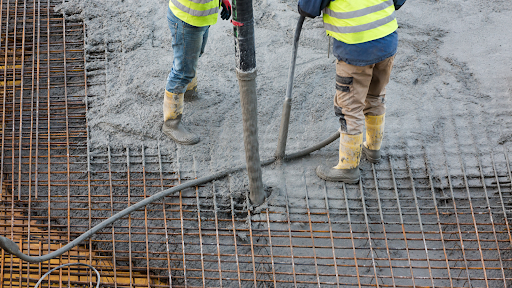How Do Different Grades of Formwork Plywood Affect Concrete Surface Quality?
F14 grade plywood and F17 grade plywood differ mainly in their ability to withstand stress—F17 offers about 21% higher bending strength than F14. This difference in strength directly affects the finish of the concrete surface, as stronger panels are better at resisting bending under the weight of wet concrete, which helps avoid uneven surfaces and bulging.
Applications of F14 and F17 Plywood
- F14 plywood is suitable for lighter residential projects such as footings and garden walls.
- F17 plywood is designed for heavier commercial pours that require superior stability in size.
The denser composition of F17 stress grades results in smoother concrete surfaces with fewer imperfections, making it the preferred option for exposed architectural concrete where appearance is important.
Importance of Choosing the Right Grade
Choosing the right grade of formply Australia can help avoid expensive surface defects. If you use panels that are not strong enough for your project, it can lead to problems like warping, shifting joints, and visible lines from pouring that will need costly repairs. To achieve the best results, select your grade based on factors such as pour height, concrete pressure, and the number of times you plan to reuse the panels.
What Are the Benefits of Using Specialised Formply Plywood in Australian Construction?
Specialised formply Australia products deliver superior concrete finishes whilst withstanding the country’s harsh climate conditions. These engineered panels feature phenolic resin-coated surfaces that create smooth, defect-free concrete while resisting moisture, UV exposure, and temperature extremes common across Australian construction sites.
Quality formwork plywood offers extended reuse cycles—up to 50+ pours compared to standard plywood’s 10-15 uses. This durability translates to significant cost savings on large-scale projects. When you buy formply from certified suppliers, you receive materials tested to Australian Standards AS 6669, ensuring consistent thickness, flatness, and structural integrity.
Choosing reputable suppliers when buying formply guarantees:
- Accurate grading certifications matching project specifications
- Properly sealed edges prevent water infiltration
- Consistent panel dimensions for precise formwork assembly
- Technical support for application-specific requirements
The right supplier relationship eliminates surface defects caused by inferior materials, reducing costly concrete remediation work and project delays.
Why Is Moisture Resistance Critical When Choosing Formwork Plywood?
Water exposure turns formply from an asset into a liability. When concrete plywood absorbs moisture, it swells and loses its shape, creating uneven surfaces that directly affect the cured concrete. Delamination occurs when water seeps between the layers of plywood, causing the adhesive bonds to fail and resulting in visible marks, ridges, or holes on the finished concrete surfaces.
Medium-Density Overlay (MDO) and High-Density Overlay (HDO) plywood offer better moisture resistance with resin-impregnated surface layers. These specialised options create a barrier that stops water from getting in during concrete pouring and curing:
- MDO plywood provides moderate protection for standard applications with limited water exposure
- HDO plywood offers maximum moisture resistance for projects needing multiple reuses or long-term exposure to wet conditions
- Both options keep their strength and smooth surface, getting rid of defects caused by water-damaged formwork
Investing in moisture-resistant formply saves money through fewer surface repairs, longer-lasting formwork, and consistent concrete finishes across multiple pours.
How to choose the right formwork plywood for different structural applications
Does your project’s structural design dictate specific formwork plywood requirements?
Yes, matching formwork plywood specifications to your structural application prevents concrete defects and ensures safe, efficient construction.
Understand the concrete pressure requirements
Start by calculating the maximum concrete pressure your formwork will experience. High-rise columns and deep beams require F17 grade formwork plywood with 17mm minimum thickness, whilst residential slabs typically perform well with F14 grade at 12mm thickness. The load-bearing capacity directly influences surface quality—undersized panels flex excessively, creating visible lines and irregularities in finished concrete.
Consider environmental factors
Environmental exposure significantly shapes your material choice. Coastal projects demand moisture-resistant formwork plywood with enhanced water protection, preventing the swelling that causes honeycomb patterns and surface voids. Sites with extended curing periods benefit from HDO or MDO overlays that maintain dimensional stability through multiple wet-dry cycles.
Assess the structural geometry
Structural geometry determines panel dimensions and flexibility needs. Curved architectural elements require thinner, more pliable formwork plywood that bends without cracking, whilst large flat surfaces need rigid panels that maintain precise alignment. Complex shapes with tight radii work best with 9mm flexible grades, whereas standard rectangular columns achieve optimal results with 17mm rigid sheets.
Where to source high-performance formwork plywood for professional construction projects
Reputable suppliers specialising in construction materials provide the most reliable access to quality formwork plywood with verified performance standards. These established distributors maintain consistent stock levels and offer technical support to match products with specific project requirements.
Certified manufacturers deliver formwork plywood that meets Australian Standards, with documentation proving structural integrity and durability ratings. Look for suppliers offering F14, F17, or specialised products like HDO plywood backed by third-party testing.
Compare both local and international distributors to balance cost efficiency with delivery reliability. Australian suppliers often provide faster turnaround times for urgent projects, while international sources may offer competitive bulk pricing. Request samples and certifications before committing to large orders, ensuring the formwork plywood meets your concrete surface quality expectations.

